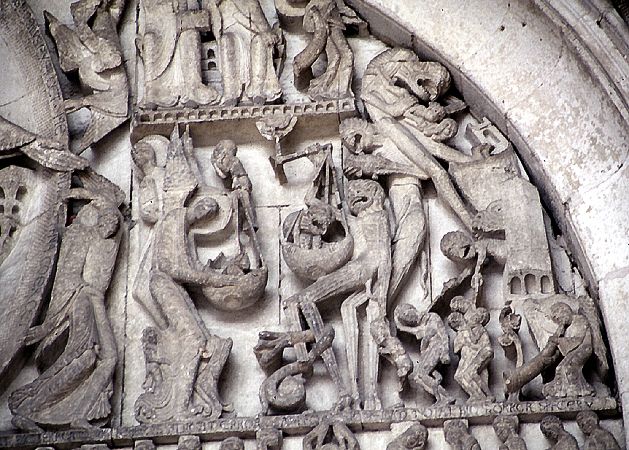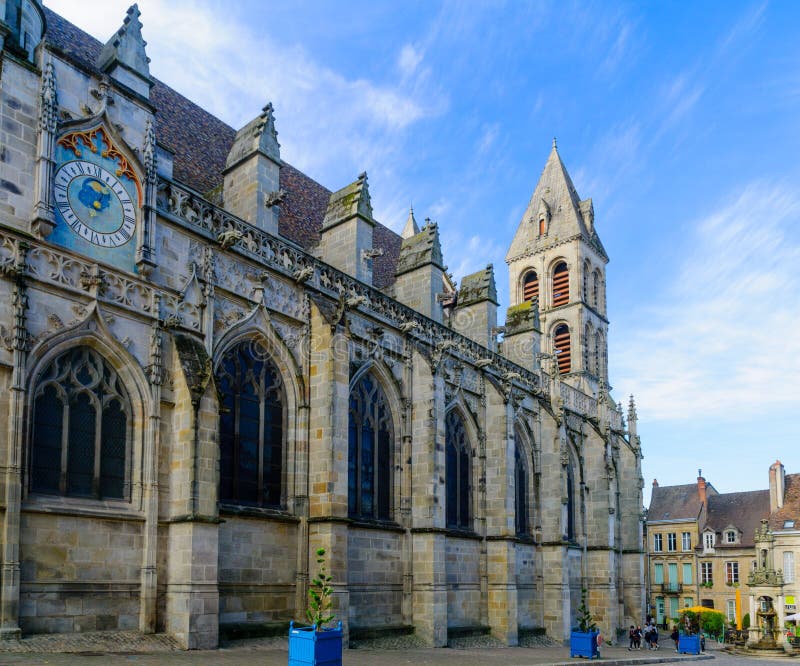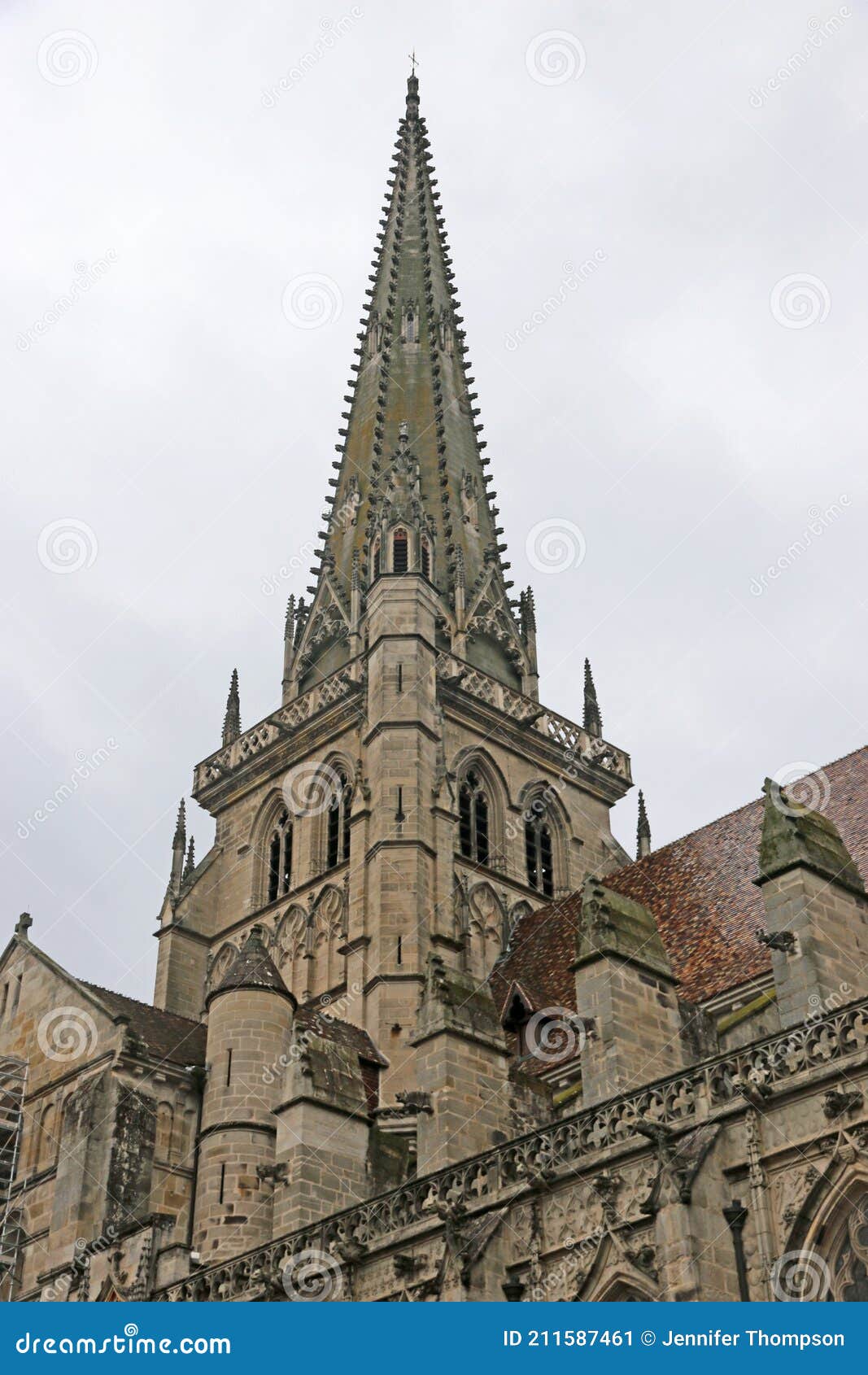Discover the Artist Behind Autun Cathedral's Decor: 1 Key Fact

Hidden within the beauty of French architecture and medieval art, the Cathedral of Saint-Lazare in Autun holds a treasure that has fascinated historians and art lovers for centuries. Within its stone walls, a series of tympanums, sculptures, and capitals transport visitors back in time. However, one key fact often stands out when exploring the vast amount of artistic creation within this Gothic and Romanesque monument:
The Master of the Sculptures


Perhaps the most intriguing fact about Autun Cathedral’s decor is the mysterious artist behind many of its works. Known simply as Gislebertus, this medieval sculptor has left an indelible mark on the cathedral, but his true identity remains shrouded in mystery. Here are some details surrounding this enigmatic figure:
- Name: The name “Gislebertus” appears only on one piece of art, the Last Judgment tympanum, where he signs his work.
- Lack of Historical Records: No other records of his life or other works exist, making his contributions to Autun Cathedral even more unique.
- Artistic Style: His works are characterized by a vivid expressiveness, evident in the lively figures and grotesque elements.
- Historical Context: His work at Autun Cathedral was created during the 12th century, a period of great religious fervor and artistic expression.
Why Gislebertus Stands Out

Understanding why Gislebertus is a focal point when discussing Autun Cathedral’s decor requires delving into the following aspects:
The Signature

In an era when artists were often anonymous, Gislebertus boldly signed his name, stating ‘Gislebertus Hoc Fecit’ (‘Gislebertus made this’) on the Last Judgment tympanum. This act was:
- Rare: Artist signatures were not common in medieval Europe.
- Personal: It lends a personal touch to the vast and impersonal nature of cathedral art.
- Controversial: Some historians debate whether this signature proves authorship or merely denotes a workshop manager.
💡 Note: The controversy around Gislebertus' signature highlights the challenge of attributing medieval art to individual artists, especially when much work was collaborative or overseen by a master craftsman.
The Artistry of Gislebertus

Gislebertus’ work showcases:
- Narrative: His compositions, particularly the Last Judgment, tell stories in a clear and engaging manner.
- Expression: His figures are often depicted with exaggerated emotions, from despair to ecstasy.
- Skill: The precise carving and detail work indicate a master craftsman at work.
| Aspect | Description |
|---|---|
| Emotional Depth | The ability to convey a range of emotions through facial expressions and body language. |
| Narrative Technique | Utilizes composition to tell stories clearly and engagingly. |
| Detail Work | Intricate carvings showing fine details in clothing, expressions, and mythical creatures. |

Influence and Legacy

Gislebertus’ work at Autun had a significant impact:
- Inspiration: His work has inspired subsequent generations of artists.
- Preservation: It has been well-preserved, allowing modern audiences to appreciate medieval art.
- Recognition: His bold signature and unique style have made him one of the few named artists of his time.
Exploring the Cathedral Today

Visiting Autun Cathedral today provides a unique opportunity to:
- Study medieval artistry.
- Understand the role of art in the religious life of the time.
- Witness the enduring legacy of Gislebertus and other anonymous artisans.
As you explore Autun Cathedral, take a moment to appreciate the layers of history and the hands that crafted its timeless beauty. From the grandeur of its architecture to the intimate details in its sculptures, the cathedral stands as a testament to the artistic and spiritual aspirations of medieval Europe.
Key points to remember:
- Gislebertus, whose real identity is unknown, has left an extraordinary mark on Autun Cathedral’s decor.
- His signature on the Last Judgment tympanum is a rare and controversial feature in medieval art.
- His work’s emotional depth, narrative clarity, and detailed execution set him apart from his contemporaries.
- The cathedral’s artistic legacy continues to inspire and teach visitors about medieval art.
Who was Gislebertus?

+
Gislebertus was a medieval sculptor known for his work on the tympanum of the Last Judgment at Autun Cathedral. His real identity remains unknown, making his presence in history somewhat enigmatic.
Why is the signature of Gislebertus notable?

+
In medieval times, artists often went unnamed, but Gislebertus signed his work on the Last Judgment tympanum, making it a rare and controversial instance where an artist claims authorship in this period.
What are the key elements of Gislebertus’ art?

+
The key elements of Gislebertus’ work include narrative storytelling through composition, expressive emotional depth in facial expressions and body language, and intricate detail in carvings.
Can I visit Autun Cathedral to see Gislebertus’ work?

+
Yes, Autun Cathedral is open to visitors who can marvel at the works attributed to Gislebertus, especially the Last Judgment tympanum and various capitals throughout the church.
What is the significance of Autun Cathedral in art history?

+
Autun Cathedral is significant for its transition from Romanesque to Gothic architecture, its preserved medieval art, including the works of Gislebertus, and its educational role in understanding the spiritual and artistic aspirations of the time.



